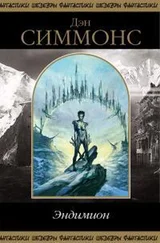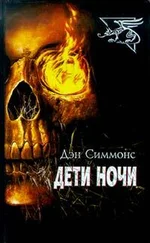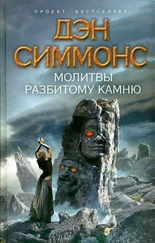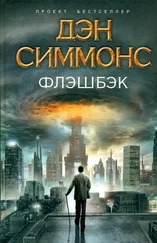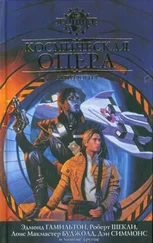Дэн Симмонс - The Rise of Endymion
Здесь есть возможность читать онлайн «Дэн Симмонс - The Rise of Endymion» весь текст электронной книги совершенно бесплатно (целиком полную версию без сокращений). В некоторых случаях можно слушать аудио, скачать через торрент в формате fb2 и присутствует краткое содержание. Жанр: Эпическая фантастика, Космическая фантастика, на английском языке. Описание произведения, (предисловие) а так же отзывы посетителей доступны на портале библиотеки ЛибКат.
- Название:The Rise of Endymion
- Автор:
- Жанр:
- Год:неизвестен
- ISBN:нет данных
- Рейтинг книги:5 / 5. Голосов: 1
-
Избранное:Добавить в избранное
- Отзывы:
-
Ваша оценка:
- 100
- 1
- 2
- 3
- 4
- 5
The Rise of Endymion: краткое содержание, описание и аннотация
Предлагаем к чтению аннотацию, описание, краткое содержание или предисловие (зависит от того, что написал сам автор книги «The Rise of Endymion»). Если вы не нашли необходимую информацию о книге — напишите в комментариях, мы постараемся отыскать её.
The Rise of Endymion — читать онлайн бесплатно полную книгу (весь текст) целиком
Ниже представлен текст книги, разбитый по страницам. Система сохранения места последней прочитанной страницы, позволяет с удобством читать онлайн бесплатно книгу «The Rise of Endymion», без необходимости каждый раз заново искать на чём Вы остановились. Поставьте закладку, и сможете в любой момент перейти на страницу, на которой закончили чтение.
Интервал:
Закладка:
The night after finishing that first chunk of our story, I dreamed that Aenea had come to me there—in the Schrödinger death cell—had called my name in the dark, touched my cheek, and whispered to me, “We’re leaving here, Raul, my darling. Not soon, but as soon as you finish your tale. As soon as you remember it all and understand it all.” When I awoke, I had found that the stylus ’scriber had been activated and on its pages, in Aenea’s distinctive handwriting, was a long note from her including some excerpts from her father’s poetry.
For days—weeks—I was convinced that this had been a real visitation, a miracle of the sort the later apostles had insisted was visited on the original disciples after Jesus’s execution—and I worked on the narrative at a fever pitch, desperate to see it all, record it all, and understand it all. But the process took me more months, and in that time I came to realize that the visit from Aenea must have been something else—my first experience of hearing a whisper of her among the voices of the dead in the Void, almost certainly, and possibly, somehow, an actual message from her stored in the memory of the ’scriber and set to be triggered when I wrote those pages. It was not beyond possibility. One thing that had been certain was my darling friend’s ability to catch glimpses of the future—futures, she always said, emphasizing the plural. It might have been possible for her to store that beautiful note in a ’scriber and somehow see to it that the instrument was included in my Schrödinger cat box cell. Or… and this is the explanation I have come to accept… I wrote that note myself while totally immersed, although “possessed” might be a better word, in Aenea’s persona as I pursued its essence through the Void and my own memories. This theory is the least pleasing to me, but it conforms with Aenea’s only expressed view of the afterlife, based as it was more or less on the Judaic tradition of believing that people live on after death only in the hearts and memories of those they loved and those they served and those they saved.
At any rate, I wrote for more months, began to see the true immensity—and futility—of Aenea’s brave quest and hopeless sacrifice, and then I finished the frenzied scribbling, found the courage to describe Aenea’s terrible death and my own helplessness as she died, wept as I printed out the last few pages of microvellum, read them, recycled them, ordered the ’scriber to keep the complete narrative in its memory, and shut the stylus off for what I thought was the final time.
Aenea did not appear. She did not lead me out of captivity. She was dead. I felt her absence from the universe as clearly as I had felt any resonance from the Void Which Binds since my communion.
So I lay in my Schrödinger cat box, tried to sleep, forgot to eat, and waited for death.
Some of my explorations among the voices of the dead had led to revelations that had no direct relevance to my narrative. Some were personal and private—waking dreams of my long-dead father hunting with his brothers, for instance, and an insight into the generosity of that quiet man I had never known, or chronicles of human cruelty that, like the memories of Jacob Schulmann from the forgotten twentieth century, acted only as subtext for my deeper understanding of today’s barbarisms.
But other voices…
So I had finished the narrative of my life with Aenea and was waiting to die, spending longer and longer sleep periods, hoping that the decisive quantum event would occur while I was asleep, aware of the text in the memory of my ’scriber and wondering vaguely if anyone would ever figure out a way through the fixed-to-explode-if-tampered-with shell of my Schrödinger box and find my narrative someday, perhaps centuries hence, when I fell asleep again and had this dream. I knew at once that this was not a regular dream—that wave-front dance of possibilities—but was a call from one of the voices of the dead.
In my dream, the Hegemony Consul was playing the Steinway on the balcony of his ebony spaceship—that spaceship that I knew so well—while great, green, saurian things surged and bellowed in the nearby swamps. He was playing Schubert. I did not recognize the world beyond the balcony, but it was a place of huge, primitive plants, towering storm clouds, and frightening animal roars.
The Consul was a smaller man than I had always imagined. When he was finished with the piece, he sat quietly for a moment in the twilight until the ship spoke in a voice I did not recognize—a smarter, more human voice.
“Very nice,” said the ship. “Very nice indeed.”
“Thank you, John,” said the Consul, rising from the bench and bringing the balcony into the ship with him.
It was beginning to rain.
“Do you still insist on going hunting in the morning?” asked the disembodied voice that was not the ship’s as I knew it.
“Yes,” said the Consul. “It is something I do here upon occasion.”
“Do you like the taste of dinosaur meat?” asked the ship’s AI.
“Not at all,” said the Consul. “Almost inedible. It is the hunt I enjoy.”
“You mean the risk,” said the ship.
“That too.” The Consul chuckled. “Although I do take care.”
“But what if you don’t come back from your hunt tomorrow?” asked the ship. His voice was of a young man with an Old Earth British accent.
The Consul shrugged. “We’ve spent—what?—more than six years exploring the old Hegemony worlds. We know the pattern… chaos, civil war, starvation, fragmentation. We’ve seen the fruit of the Fall of the Farcaster system.”
“Do you think that Gladstone was wrong in ordering the attack?” asked the ship softly.
The Consul had poured himself a brandy at the sideboard and now carried it to the chess table set near the bookcase. He took a seat and looked at the game pieces already engaged in battle on the board in front of him. “Not at all,” he said. “She did the right thing. But the result is sad. It will be decades, perhaps centuries before the Web begins to weave itself together in a new form.”
He had been warming the brandy and sloshing it gently as he spoke, now he inhaled it and sipped.
Looking up, the Consul said, “Would you like to join me for the completion of our game, John?”
The holo of a young man appeared in the seat opposite. He was a striking young man with clear hazel-colored eyes, low brow, hollow cheeks, a compact nose and stubborn jaw, and a wide mouth that suggested both a calm masculinity and a hint of pugnaciousness. The young man was dressed in a loose blouse and high-cut breeches. His hair was auburn-colored, thick, and very curly. The Consul knew that his guest had once been described as having “a brisk, winning face,” and he put that down to the easy mobility of expression that came with the young man’s great intelligence and vitality. “Your move,” said John. The Consul studied his options for several moments and then moved a bishop.
John responded at once, pointing to a pawn that the Consul obediently moved one rank forward for him. The young man looked up with sincere curiosity in his eyes. “What if you don’t come back from the hunt tomorrow?” he said softly.
Startled out of his reverie, the Consul smiled.
“Then the ship is yours, which it obviously is anyway.” He moved his bishop back. “What will you do, John, if this should be the end of our travels together?”
John gestured to have his rook moved forward at the same lightning speed with which he replied. “Take it back to Hyperion,” he said. “Program it to return to Brawne if all is well. Or possibly to Martin Silenus, if the old man is still alive and working on his Cantos.”
“Program it?” said the Consul, frowning at the board. “You mean you’d leave the ship’s AI?”
Читать дальшеИнтервал:
Закладка:
Похожие книги на «The Rise of Endymion»
Представляем Вашему вниманию похожие книги на «The Rise of Endymion» списком для выбора. Мы отобрали схожую по названию и смыслу литературу в надежде предоставить читателям больше вариантов отыскать новые, интересные, ещё непрочитанные произведения.
Обсуждение, отзывы о книге «The Rise of Endymion» и просто собственные мнения читателей. Оставьте ваши комментарии, напишите, что Вы думаете о произведении, его смысле или главных героях. Укажите что конкретно понравилось, а что нет, и почему Вы так считаете.


